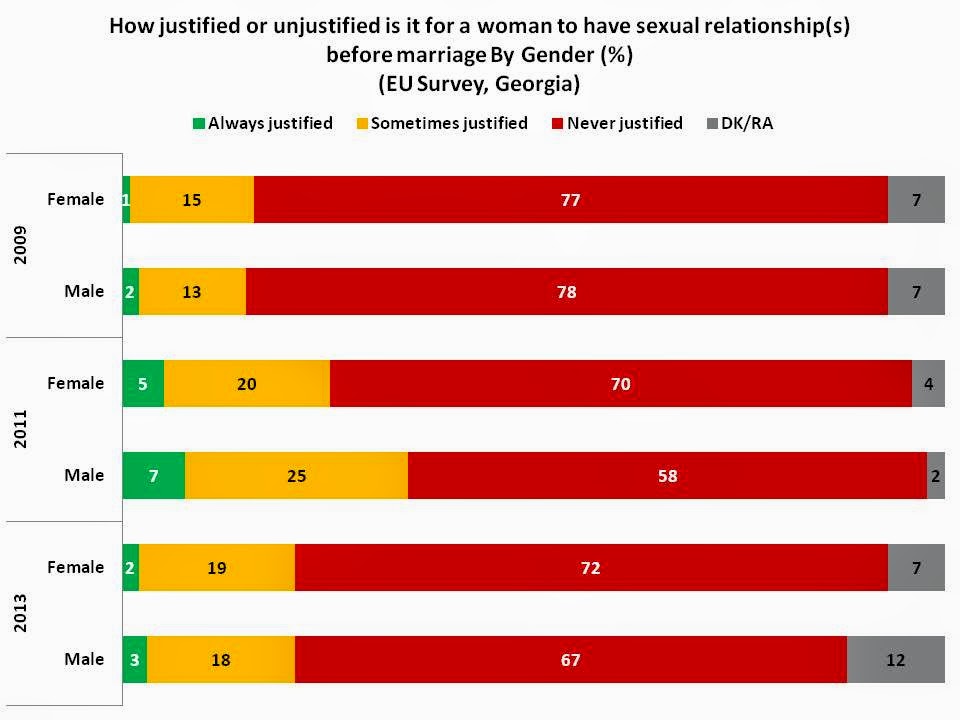Conservative traditions have always been strong in Georgian society, and especially so when it comes to relationships. Nonetheless, men are often allowed and even encouraged to engage in premarital sex, while it is usually considered unacceptable for women. Using data from the survey Knowledge and attitudes towards the EU in Georgia (EU Survey) funded by the Eurasia Partnership Foundation and conducted by CRRC-Georgia in 2009, 2011 and 2013, this blog post looks at who reports more liberal views in regard to premarital sex in Georgia – men or women – and whether there are any differences in attitudes based on respondent age, level of education, or settlement type.
Attitudes towards premarital sex are changing in Georgia. In 2009, when asked, “How justified or unjustified is it for a woman to have sex before marriage?” 78% of Georgians reported that it is never justified. In 2013, 69% reported the same. In contrast, a much lower share of the population thinks that premarital sex is never justified for men – 39% in 2013, slightly up from 33% in 2011.
While dominant values, religion, and patriarchy engender many stereotypes about gender in Georgia, women also play an important role in maintaining them. A slightly higher percentage of women than men reported in 2011 that it is never justified for women to have premarital sex (70% and 58% respectively) while in 2013 and 2009 the percentages are almost equal.
Counter-intuitively, the younger generation (18-35 year olds) in Georgia disapproves of premarital sex for women to almost the same extent as older generations. As shown in the chart below, 18-35 year old Georgians are nearly as likely as 36-55 year olds to report that it is never justified for women to have sex before marriage. The youngest age group, however, is slightly less likely to report disapproval compared with Georgians who are 56 years old and older.
Residents of the capital are the least conservative on this issue, but rates of disapproval have declined both in and outside the capital since 2009. In 2013, only 48% of Tbilisians thought that premarital sex was never justified for women compared with 65% in 2009. In non-capital urban settlements, disapproval declined slightly from 83% in 2009 to 71% in 2013. Rural residents are the most conservative, with 79% thinking that premarital sex for women should never be justified in 2013, but some change can be seen over the years in rural settlements as well – in 2011 and 2009, 88% of rural residents reported that women having premarital sex is never justified.
Education also plays a role in forming Georgians’ attitudes towards controversial issues. In 2013, 63% of those with higher education believed that premarital sex was never justified for women, while 81% of those with secondary technical and 84% of those with secondary or lower education reported the same.
To sum up, level of education, age and settlement type are important to consider when examining Georgians’ attitudes towards premarital sex. Although Georgians generally disapprove of women having premarital sex, attitudes appear to be changing.
